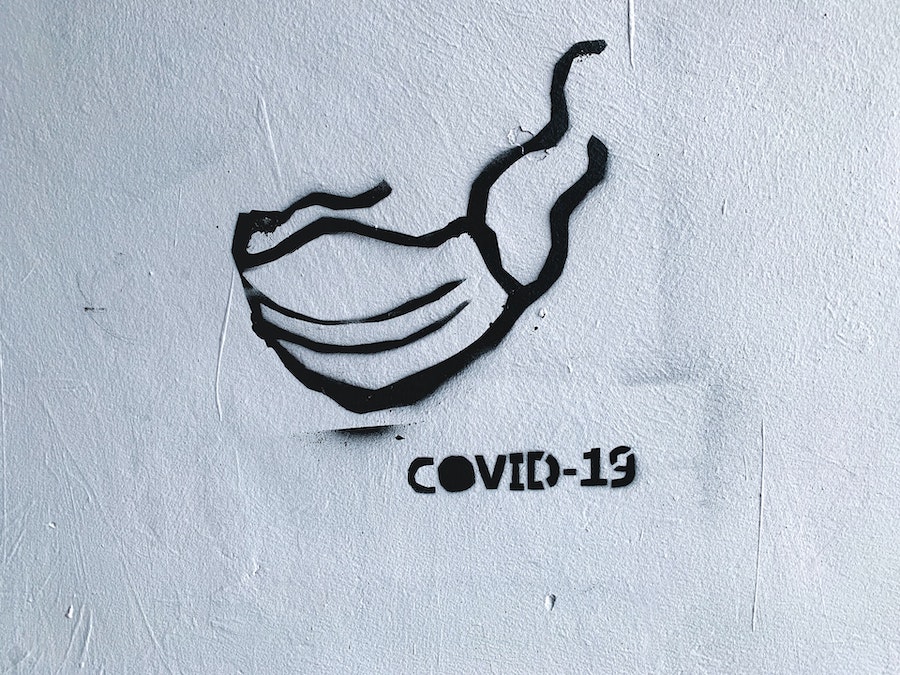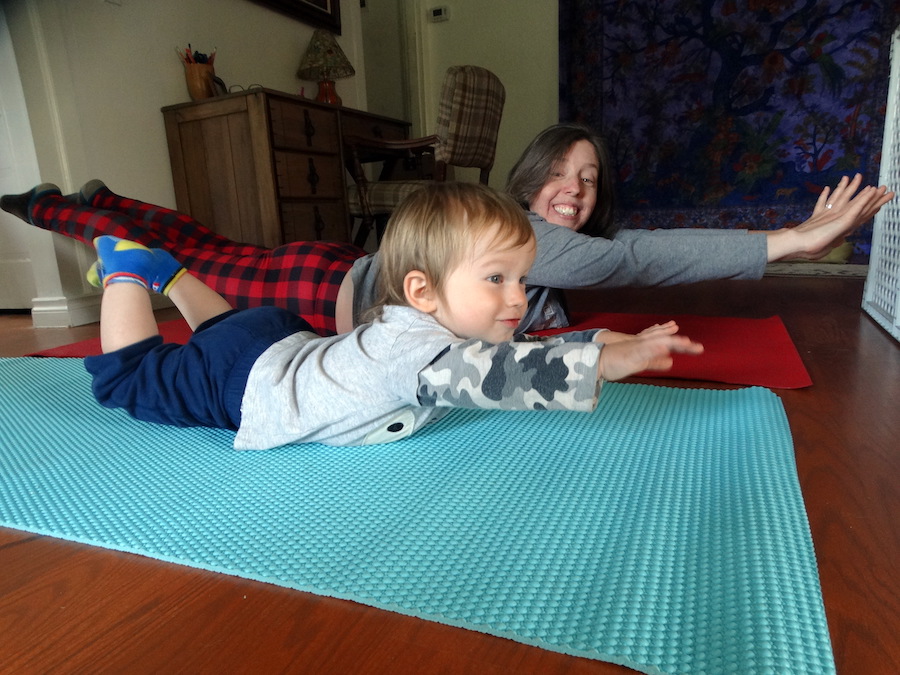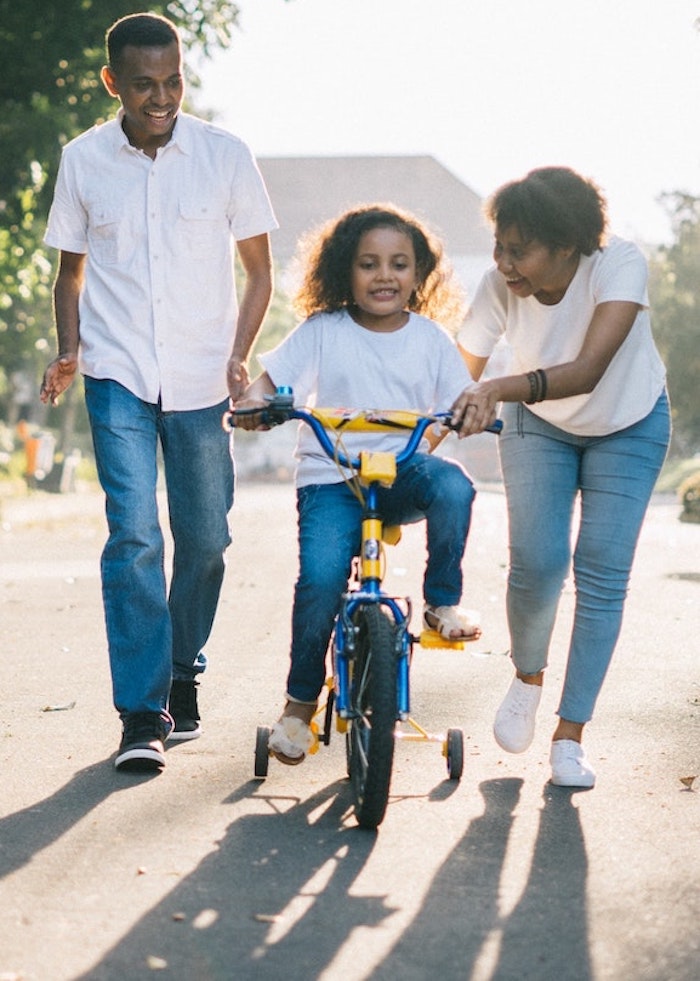With all of the biohazard suits on the news, and members of society donning masks and gloves, and people spending considerable time around the house even though springtime is humming, it can be hard to give our children more answers than questions. I talked with Gregory May, the administrative director of adult and family services at Centerstone in Bloomington.
“COVID-19 has certainly disrupted the routine of everyone,” May said. “And much of children’s normal lives has come to a halt.”
Standard schooling has been put on hold, and though summer break is approaching, many parents are exhausted from playing the role of teacher (as if they didn’t have enough already). Furthermore, most childhood activities involve groups of others. Despite the reassurance of a soft reopening in Indiana, many of the usual outlets for kids won’t be available for the near future. Normal is apparently a long way off, with possible future stay-at-home orders in the fall and beyond.

Parents can’t shield their children from the stark images and grim realities brought on by the pandemic. Especially now, Posey writes, children still need us to show up in their lives. | Photo by Adam Nieścioruk on Unsplash
These grim realizations can make it hard to shield children from the stress they feel from many of us. Our anxiety is understandable when faced with the health concerns of loved ones, our own economic hardships, and a general feeling of uncertainty. Yet, as always, we are being watched by our children — and learned from. “While kids are often dismissed, they are definitely paying attention,” May says. “They pay attention to everything.”
Doing our best
Especially now, our children need us to show up in their lives and to convey the security and confidence that allows them to feel safe in the world. So what do we do? How do we keep the world together for those innocent souls that lean so heavily on us? For one, it may help to start by lowering our expectations. According to May, “This is a perfectly appropriate time for people just to survive.”
Social media can make us feel like we should be thriving, even now, and in times like this that may be unreasonable. It’s important that we meet ourselves where we are, and allow ourselves to process the emotions and difficulties of enduring this pandemic.
Amy Makice is a licensed clinical social worker and the founder of Bloomington Center for Connection, an organization that promotes social change through connection. She says the biggest allowance we can give ourselves as parents right now is “to be human. This is a scary time, and it’s okay to be sad and scared and frustrated.”
One thing about pandemics is they don’t ask for our approval, and, by definition, they affect all of us. Life all of a sudden is very different, and this won’t be a clean, linear process. We can only do our best. “My biggest goal right now is to help parents let go of whatever stress they’re putting on themselves,” Makice says. If we’re to get through this crisis, we’ll need to have heaps of empathy not just for our kids, but for ourselves too.
The importance of self-care
Parenting is a series of simple actions — making breakfast, answering questions, setting up crafts, playing in the yard, putting the kids to bed. However, anyone who has ever done it knows that it’s not easy. Why? The constant nature of parenting can make it exhausting even on a good day. This has been intensified by parents doing much more, well, parenting.

Katie Posey does ‘silly yoga’ with her son. | Photo by Jared Posey
Thus, before we address the important work of tending to our kids, it is essential that we tend to ourselves. We will need extra resilience during this time, and, therefore, extra self-care. Makice recommends talking to other adults, reflecting and working through everything that’s happening around us. This will help us listen when our kids need to express their own emotions and concerns. Also, she encourages parents to go outside, do some intentional breathing, take a hot shower, or get some exercise — anything to hit the reset button and come back slightly more refreshed.
How do we find the time? The same way we do the impossible of providing our kids with physical sustenance and emotional nurturing and still manage to keep the house clean (just kidding). We prioritize first what truly matters, and, just like our kids, we matter. If a partner can take the kid(s) while the other gets a break, great. If that’s not an option, and you need to sit the kids in front of the television for 20 minutes while you recharge, you shouldn’t guilt yourself over needing some help.
Otherwise, get the whole family involved. May emphasizes the importance of everyone going on walks or bike rides, playing outside, or any other ways to get active and produce endorphins that help to maintain a positive outlook. This is a time to get back to what matters, and what matters most is the relationships we have with others and the one we have with ourselves.
We still have a job to do
As challenging as it is to parent through a pandemic, one silver lining is that we have the opportunity to demonstrate for our kids how to face adversity. Remember: These are the kids who will be facing climate change and many untold realities in the wake of globalization and modernization. As Makice says, “We can shape their future experience, modeling the importance of community and public health — and that naturally extends to the health of the planet.”

Play is how children largely process the world and their emotions, Posey writes. It is also a natural way to connect with kids and a powerful way for parents to de-stress. | Photo by Agung Pandit Wiguna from Pexels
Makice recommends that step one for overwhelmed parents be to “connect with your kids, whatever that looks like.” As play is the most natural way to connect with kids and how they largely process the world and their emotions, it’s a great place to start. In addition, it may be that we need to play as deeply as our children do.
Not only is connecting with our children through play, fun, and laughter an excellent way to meet their needs and fill their cups, it is also a powerful way we can de-stress, return to the present moment, and consider the possibility that we may not go insane during this pandemic. Playful Parenting, a book by Lawrence Cohen, is loaded with ideas to get your kids giggling. He recommends affectionate roughhousing, pretending to be completely incompetent, and making inanimate objects talk. (Warning: He often suggests making a complete fool of yourself.)
We are being challenged right now. However, in raising children in an imperfect world, we must find opportunities to be wise and loving parents, even in terrible circumstances. This is not going to be easy, but this challenge allows us the possibility to blaze trails for the future. May says this applies to not just parents but also role models and community members, and that we have the chance to “build that sense of community in a way we haven’t had to before.” Everyone needs to adapt in some ways, but we can keep that society intact — and even improve it — by how we live through this pandemic.
Our kids are predicted to face many more uncertainties and challenges than even we have had to encounter. How will they respond? Perhaps in the way we respond to times like now. They’re watching. We as parents — and as people — must choose wisely, and let compassion, reason, and courage take the wheel. After all, says Makice, “Even as we isolate, we need each other.”
_
Parenting Resources
In a world of technology and the internet, there have never been more resources available to kids and parents stuck at home.
Common Sense Media has resources for parents during a pandemic.
Waterford.org, a child-learning nonprofit, has a self-care guide for parents.
This Ars Technica article (with videos) helps with how to talk to kids about COVID-19.
Amy Makice will be maintaining a blog throughout the COVID-19 pandemic. Her insightful posts can be seen at the bottom of the Bloomington Center for Connection home page.
Dr. Laura Markham has a blog with practical advice for parents during the pandemic.
The Indiana Department of Education has compiled a database of resources for parents, teachers, and students.
If you need extra help during this time, please don’t hesitate to contact a health professional:
Monroe Health America of Monroe County is a local nonprofit dedicated to supporting mental health through education, referral, and service.
Community Organizations (list by Monroe County Public Library)
Monroe County Mental Health Resources are listed on the website for the Monroe County prosecutor.
Bloomington Center for Connection is Amy Makice’s website.
IU Health Behavioral Health Services lists resources offered by IU Health Bloomington.
Centerstone Bloomington offers a range of mental healthcare services.


